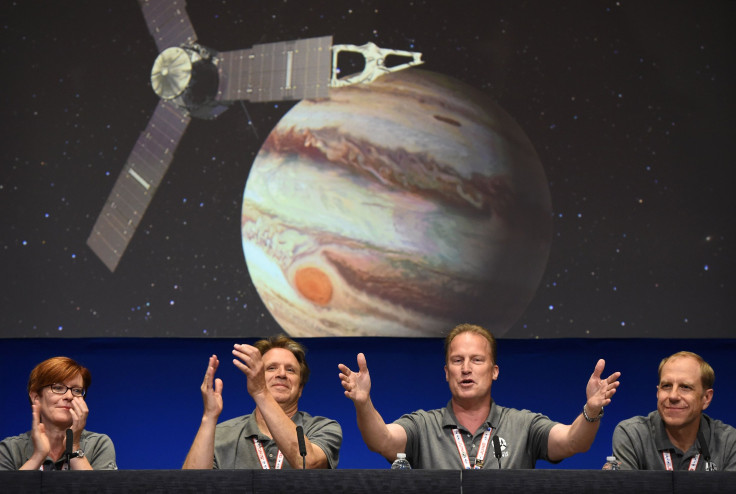Jupiter Has 12 New Moons, Now They Need Names And The Rules Are Harder Than You Think

After the accidental discovery of 12 new moons orbiting Jupiter, scientists at the Carnegie Institution for Science have announced a contest to name five of them and anyone with a Twitter account can enter their suggestion.
While the contest might be open to just about anyone, the guidelines make it a little difficult to come up with something original. The institution's strict parameters were made in accordance with the standards set by the International Astronomical Union.
According to the rules listed on their site, entries must be 16 characters or less and cannot closely resemble names already given to pre-existing moons or other celestial bodies like asteroids.
Their guidelines also state that submissions "must not be offensive in any language or to any culture," cannot bear any relation to commercial enterprises, and can't be named after individuals, places, or people affiliated with "political, military, or religious activities."
Names entered to commemorate living people are also barred from consideration.
While these rules might seem pretty commonplace, others get a bit more specific. Because the moons orbit Jupiter, they must be named after characters from Roman or Greek mythology that bear some connection to the character Jupiter (or Zeus) as "either descendants or lovers of the god," known as the ruler of the pantheon of gods in both mythologies.
The names of certain moons must also end in either an "a" or an "e," depending on if they are either in retrograde or in prograde.
Those who want to enter the contest can tweet their entries to @JupiterLunancy along with the hashtag #NameJupiterMoons. Entries must be in text or the form of a video, accompanied by a short explanation as to why each contestant picked their name to enter.
The contest ends on April 15.
Carnegie researchers first announced the discovery in July 2018 during a search for another possible planet beyond Pluto, which they have named "Planet X" and "Planet 9" interchangeably.
The discovery of the moons brings Jupiter's total number to 79, making it the most moon-rich planet in our solar system.
The first of Jupiter's moons were discovered in 1610 by famous Italian astronomer Galileo Galilee, which are now named Io, Europa, Ganymede and Callisto.
© Copyright IBTimes 2025. All rights reserved.





















